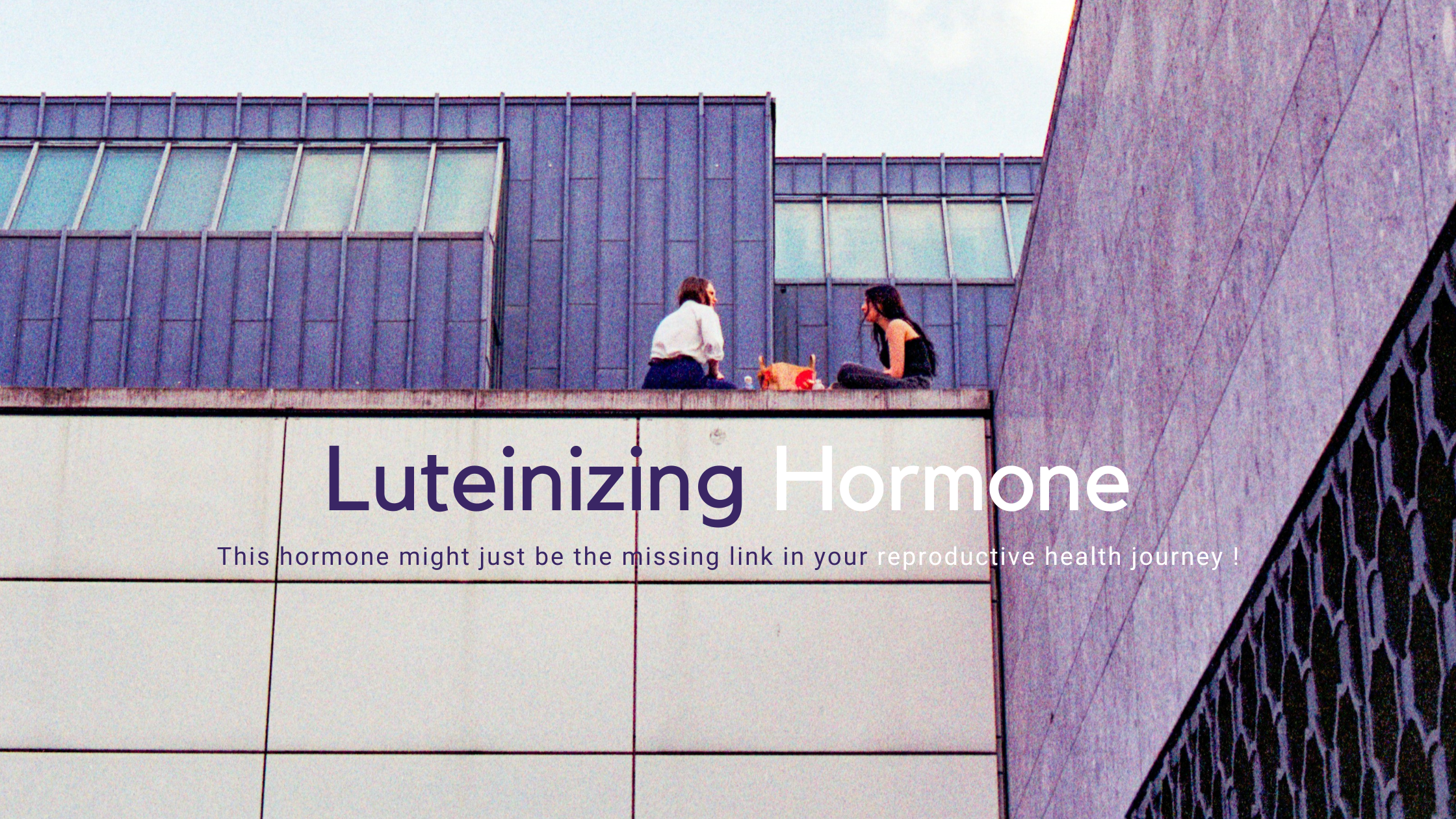In the female health space, there is a lot of focus on estrogen and progesterone. Though they are the main, female hormones, they are not the only hormones in charge of your reproductive function. The human body is complex and requires much more than two hormones to keep it afloat. Let us introduce you to one unsung hero of the female reproductive health; Luteinizing hormones or LH.
Luteinizing hormone, or LH, is a key player in your body’s reproductive system. Produced by the anterior pituitary gland, LH works closely with follicle-stimulating hormone (FSH) to keep everything running smoothly, from puberty to fertility and beyond. It plays a crucial role in both male and female development.
This article will cover:
- What is LH
- How does it develop in the body
- What does it do
- LH and ovulation
- LH and fertility
- and why your luteinizing hormone levels matter!
What Is Luteinizing Hormone, and How Does It Work?
LH is part of a communication network between your brain and reproductive organs called the hypothalamic-pituitary-gonadal axis. The hypothalamus sends signals to the pituitary gland, which then releases LH into the bloodstream. In women, LH release is controlled by estrogen levels, while in men, testosterone plays a similar regulatory role.
LH’s job varies between men and women. In men, it tells the testes to produce testosterone, essential for sperm production and male characteristics. In women, LH triggers the ovaries to produce steroid hormones and plays a central role in regulating your menstrual cycle, ovulation, and preparing your body for pregnancy.
How LH Develops in the Body
LH starts playing a role even before birth. In male fetuses, LH helps increase testosterone production, supporting the development of male reproductive organs. Female fetuses have higher LH levels but their reproductive development doesn’t rely much on LH or similar hormones until after birth.
After delivery, LH levels rise briefly but then settle low until puberty approaches. As puberty starts, LH secretion increases, helping kick-start sexual development and fertility.
The Role of Luteinizing Hormone in Your Body
Your hypothalamus controls LH release by sending pulses of GnRH, a hormone that signals the pituitary to produce LH. This process is influenced by various brain chemicals and feedback from sex hormones like estrogen, progesterone, and testosterone to keep everything balanced.
In women, LH stimulates the ovaries to produce hormones and is the key trigger for ovulation—the release of an egg each cycle. After ovulation, LH supports the corpus luteum, which makes progesterone to prepare the uterus for a potential pregnancy.
LH and Ovulation
Ovulation is a coordinated event between your brain and ovaries. GnRH from the hypothalamus signals the pituitary to release LH and FSH, which act on the ovarian follicle housing the egg. LH prompts certain cells in the follicle to produce precursors that get converted into estradiol, a form of estrogen.
When estradiol reaches a high enough level, it flips the usual negative feedback and causes a surge in LH. This surge triggers ovulation—the release of the mature egg from the follicle. Afterward, the follicle turns into the corpus luteum and starts producing progesterone to support the uterus lining.
Luteinizing Hormone Testing and Fertility
Many women use ovulation predictor kits that detect LH in urine to find their most fertile days. These kits help pinpoint when the LH surge is about to happen so conception chances are higher.
LH also plays a role in fertility treatments like IVF. Having the right balance of LH is important for growing healthy follicles and triggering ovulation. Women with low LH levels may benefit from supplemental LH during treatment, which has been shown to improve outcomes such as hormone levels and pregnancy rates.
Why LH Matters Clinically
LH levels can indicate or affect various health conditions. For example, men with chronic kidney disease often experience testicular issues linked to abnormal LH secretion, which affects testosterone and fertility.
In men with hypogonadotropic hypogonadism—a condition where the brain doesn’t send the right signals to produce LH—low LH means low testosterone and impaired sexual development. Treatments that replace hormones or mimic natural pulses of GnRH and LH can help restore fertility.
In women, LH imbalances can lead to ovulation problems and infertility. While supplementing LH during fertility treatments often helps, too much LH at the wrong time can negatively impact ovulation and embryo implantation.
Wrapping up
Even though estrogen and progesterone are key reproductive hormones, other hormones such as LH and FSH also play a key role in your health! Knowing how LH functions in your body can help you understand your reproductive health better. If you’re experiencing irregular cycles, trouble conceiving, or hormonal symptoms, talking with your healthcare provider about LH and hormone testing can provide clarity and guide the best care for you.
Sources
Nedresky D, Singh G. Physiology, Luteinizing Hormone. [Updated 2022 Sep 26]. In: StatPearls [Internet]. Treasure Island (FL): StatPearls Publishing; 2025 Jan-. Available from: https://www.ncbi.nlm.nih.gov/books/NBK539692/
“Luteinizing Hormone (LH) Test: Purpose, High vs. Low vs. Normal Levels.” WebMD, WebMD, www.webmd.com/a-to-z-guides/luteinizing-hormone-test. Accessed 10 June 2025.


